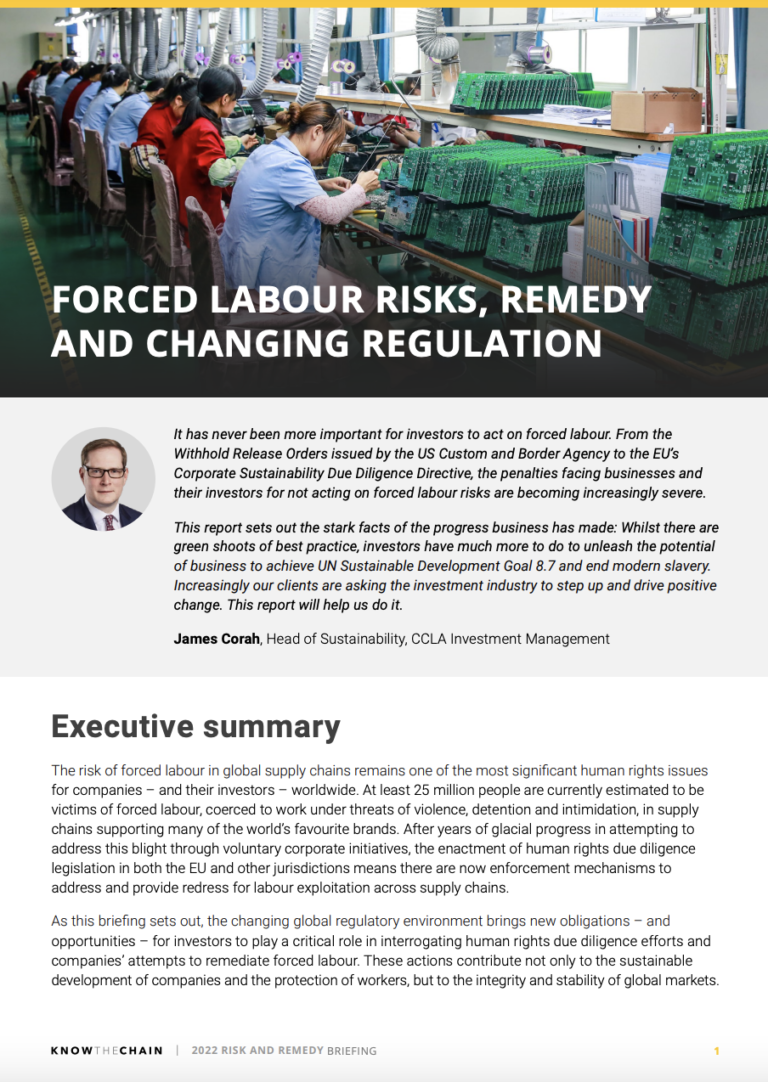The risk of forced labour in global supply chains remains one of the most significant human rights issues for companies – and their investors – worldwide. At least 25 million people are currently estimated to be victims of forced labour, coerced to work under threats of violence, detention and intimidation, in supply chains supporting many of the world’s favourite brands. After years of glacial progress in attempting to address this blight through voluntary corporate initiatives, the enactment of human rights due diligence legislation in both the EU and other jurisdictions means there are now enforcement mechanisms to address and provide redress for labour exploitation across supply chains.
As this briefing sets out, the changing global regulatory environment brings new obligations – and opportunities – for investors to play a critical role in interrogating human rights due diligence efforts and companies’ attempts to remediate forced labour. These actions contribute not only to the sustainable development of companies and the protection of workers, but to the integrity and stability of global markets.

